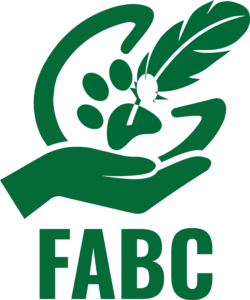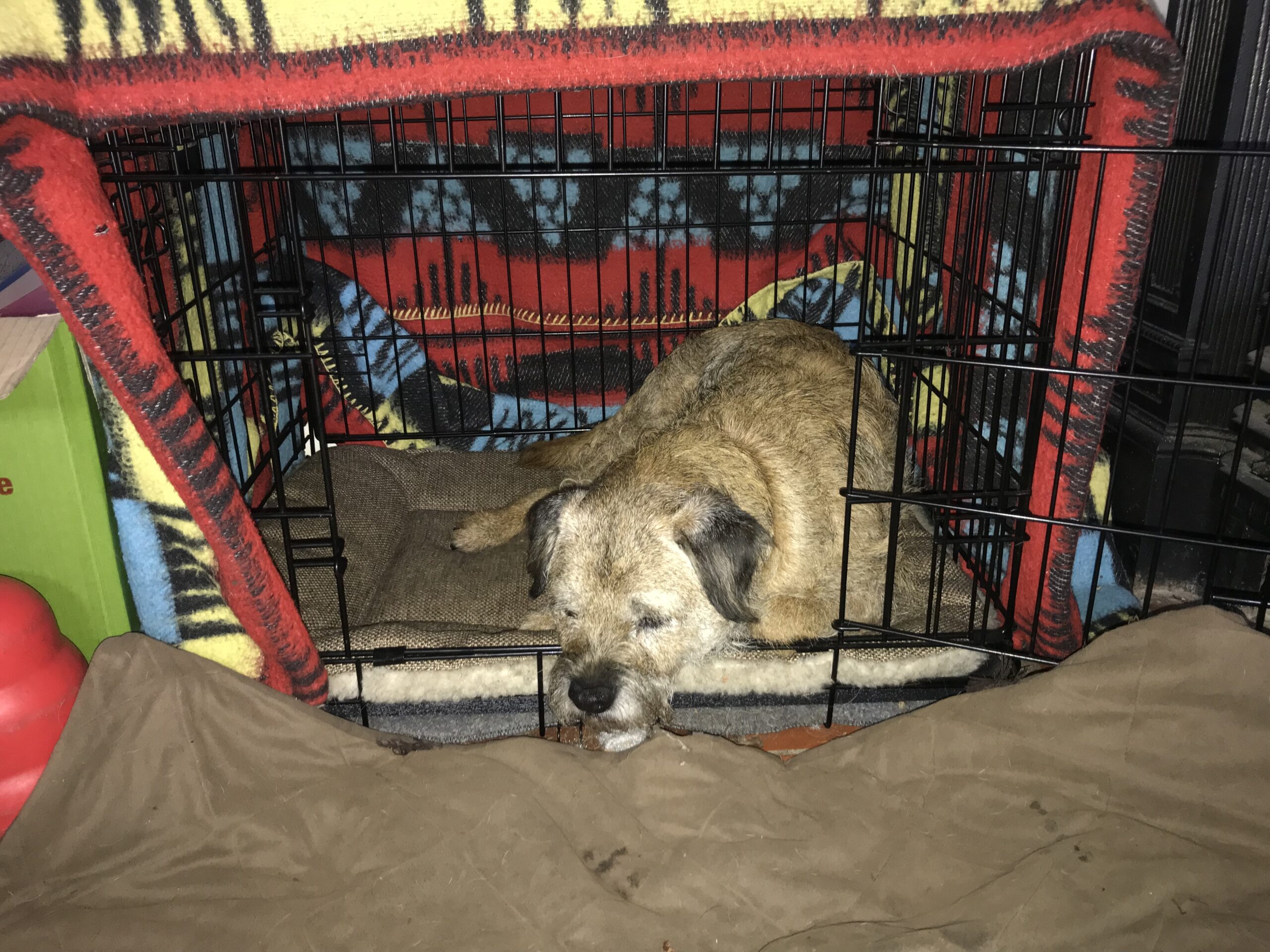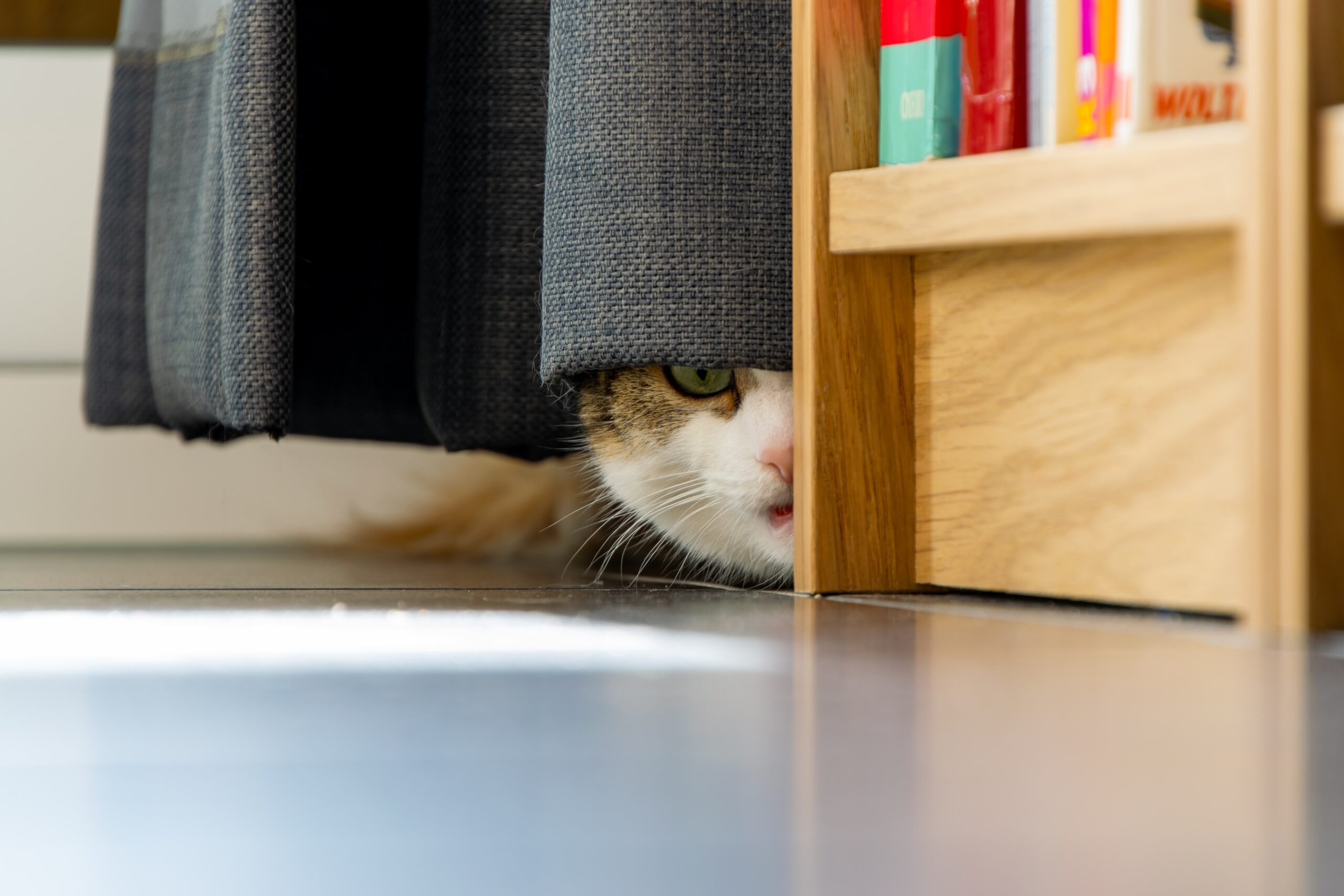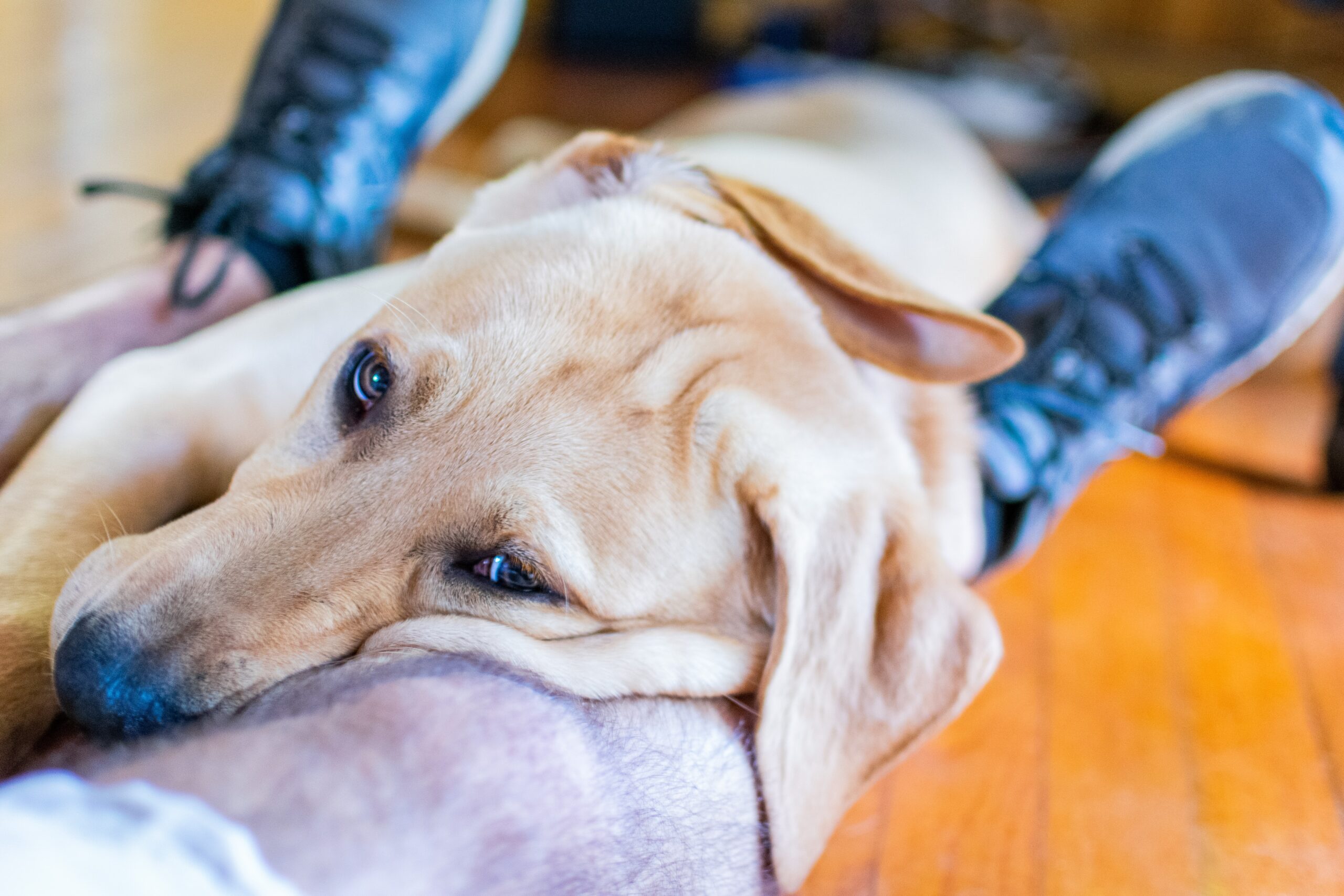
Sound Sensitivities Emergency Management Blog
Sound Sensitivities are very common in the UK’s pet population. The 2018 People’s Dispensary for Sick Animals’ annual welfare report, stated that 40% of pet owners who completed their survey felt their dog was afraid of fireworks. In the UK November to January are typically the most difficult months of the year for animals with sound sensitivities. In this blog we consider how best to implement emergency management in order to minimise distress and further worsening of the condition.
Development of the problem.
There are various mechanisms by which an animal can become sensitive to sound.
- Genetic susceptibility: a genetic influence on sound sensitivity has been identified in some breeds of dog
- Insufficient habituation to the appropriate noises in early life/development
- Sensitisation to a particular sound due to repetitive exposure to it. Sensitisation rather than habituation will often take place if an animal’s emotional arousal level is higher, if the strength of the stimulus is greater or if the animal was in a negative emotional state prior to exposure to that stimulus. This may explain why generally fearful dogs often have a significantly higher sensitivity to noise.
- Traumatic association i.e. the learned/acquired fear following a traumatic experience e.g. exposure to a very loud noise that startled the animal
Diagnosis
Diagnosis is based on identification of signs of fear related to sound events. We must however remember that medical factors may impact both how an animal perceives a sound and their threshold for a fear reaction. Pain (including chronic pain), sensory changes, endocrine disease and cognitive decline may all impact on an individual animal’s response to sounds. All animals presenting for sound fears should have a full history taken and medical examination carried out.


Key Points for Emergency Management of Sound Sensitivities
Above all else our aim should be to prevent distress or further sensitisation. In the run up to Fireworks night the key points that Veterinary Staff should aim to get across are:
Preparation – In whatever time the client has they should plan. Examples would be
- Arrangements for the animal to stay with a friend / family member in a quiet area
- Preparing a safe den and accustoming the animal to this area. Create the den in an area the animal has shown a preference for if this is safe / practical.
- Checking times of local displays / speaking to neighbours
- Check that animal’s microchip details including contact numbers are up to date: this will increase the chances of them being successfully returned to their owners if they are scared by noises and manage to escape.
- Make a plan for the event and ensure all family members are aware of this
Management just prior to and during the event –
- Walk dogs before dusk so they are back before dark and settled for the evening.
- Provide a clean litter tray for cats and ensure that they are safe inside before dusk.
- Feed your pet mid-late afternoon so they are more relaxed by dusk
- Close cat flap, windows, doors and curtains.
- Ensure the animal has access to their safe place.
- Block out noise using the TV, music or white noise.
- Bring small pets inside if possible or cover runs / hutches.
Medication – animals that have previously shown distress in response to sounds, for whom exposure cannot be avoided, should receive effective evidence based medication – see Table 2. Clients should be approaching their vet at least 2 weeks prior to the event to discuss medication.



Owner responses:
There has been much conflicting advice over how owners should react if their pet reacts to sounds. The following practical advice may help clients manage situations
- If your dog has heard the noise but remains calm, distract them by doing something they enjoy but is not emotionally arousing such as search games (e.g. sniffing for scattered treats) or giving a kong stuffed with soft paste that the dog must hold still to lick out. Cats who remain calm can be offered attention or food treats.
- If your pet shows mild anxiety, continue to offer higher value food if your pet is able to take this. Increase efforts to reduce the impact of the noise by moving to a better insulated room, covering doors / windows or adjusting the background noise. Ensure your pet is aware of their den and encourage its use.
- If your pet is distressed, do not punish them. This can add to their fear/anxiety.
- For many pets contact with their owner is an important part of their coping mechanism for fear inducing events and although the long term aim will be to encourage independent coping strategies we must acknowledge that the distress and panic these animals experience is significant and take all steps to reduce this. Therefore, in the emergency situation owners should be advised that it is fine to reassure their pets if this reduces distress.
Psychoactive Medications:
For dogs that show a phobic or panic response prescription medication is essential. As veterinary professionals we have a responsibility to use evidence-based treatments. Medications should provide anxiolysis, minimise further negative learning and if the animal’s panic response is to flee some level of sedation may be required. Consideration should be given to the prescribing cascade, health of the animal and practicality of administration.
Complimentary treatments:
Synthetic analogues of several pheromones are commercially available in the UK. These may be beneficial alongside appropriate environmental management and medication as required.
Supplements / Nutraceuticals
There is an ever-increasing array of supplements, diets and complimentary therapies marketed for the alleviation of sound sensitivities in animals. Although some of these products may be beneficial the regulations governing these products are very different to those covering pharmaceuticals. At the current time good quality, placebo-controlled research is lacking for many of these products. This does not mean that they will not prove in time to have value. However, they should not be used in preference to pharmacological agents with a more established evidence base in animals with more than very mild noise-related fear or anxiety.
Sound sensitivities and fireworks events in particular have a huge impact on the welfare of the animals that share our lives. With good practical advice and appropriate use of medication veterinary surgeons can greatly enhance the welfare of their patients during these events.
Click here to download our client handout on Preparing for Fireworks

